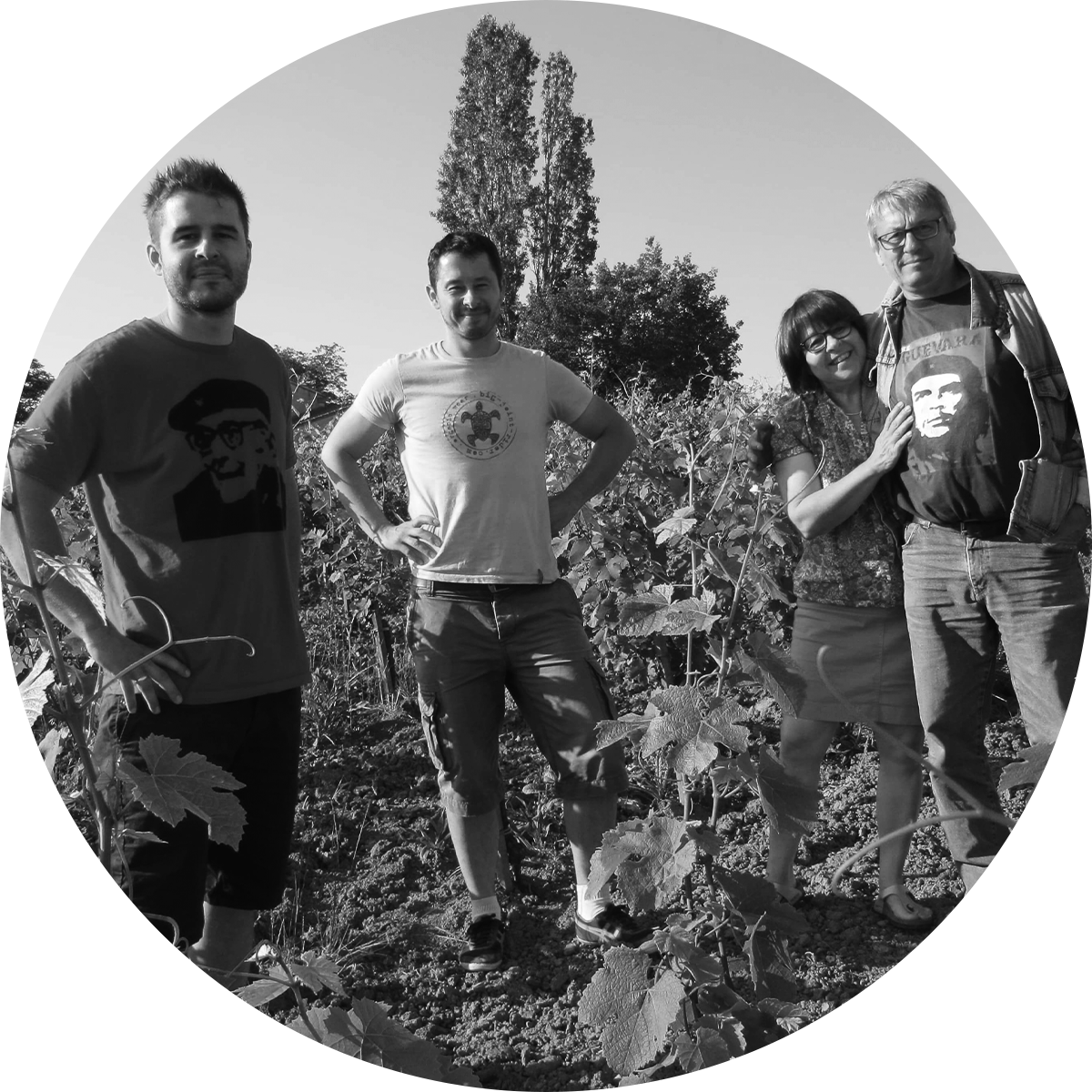DOMAINE PLAGEOLES
BERNARD, FLORENT, AND ROMAIN PLAGEOLES
Gaillac, Midi-Pyrénées, France
Located northeast of Toulouse in South-West of France, graced by a cool maritime climate, Gaillac receives more sunshine than Bordeaux. Its wines got their pin on the international wine map thanks to the hard work and determination of the Plageoles family. Robert Plageoles, who started the Domaine in 1805, took great pride in bringing back the lost indigenous varieties of the area. He researched and replanted a palette of indigenous grapes that were almost lost - Mauzac Vert, Mauzac Noir, Ondenc, Duras, Muscadelle, Prunelart and so on. Nowadays, the Plageoles family is one of the oldest in the AOC. Robert’s son Bernard continued the family’s work, followed now by his sons Florent and Romain who have taken up the cause of natural wines in Gaillac, farming 20-hectares of vineyards.
Fun facts: Gaillac is an historic wine producing region and one of France's oldest viticultural areas. The terroir in Gaillac is made up of clay, limestone, sand and silex soils and its viticultural area covers 64 communes radiating for roughly 20km, from the town of Gaillac to the Tarn river.
BACKGROUND OF NATURAL WINE IN SOUTH WEST
The South West of France stretches along the Atlantic coast and it’s bordered by the Pyrenees mountains. Popular grape varieties cultivated here include Malbec, Tannat, Merlot, Sauvignon Blanc, and Gros Manseng, among others. With its dynamic terroir, unique microclimates, and commitment to sustainable viticulture, the South West of France continues to captivate wine enthusiasts with its distinct flavours and exceptional quality.
Organic, Biodynamic and Natural wine. What’s the difference?
To understand this concept and its various ramifications, it is necessary to keep something clear in mind: before the 20th century and the spreading of affordable synthetic fertilisers, all farming was organic. When the shift to the use of synthetics and pesticides happened, it became necessary to diversify traditional organic farming from the new modern farming.
ORGANIC WINE
Simply put, organic farming forbids the use of synthetic fertilisers, synthetic pesticides, herbicides, or genetically modified organisms. The basic requirements are generally specific and engage the farmers not to use any chemical fertilisers and other synthetic products in the vineyard. It does not prevent the vintner from using the conventional winemaking process after harvesting.
BIODYNAMIC WINE
Let’s take organic farming one step further: Biodynamic. The creator of this agricultural system is the Austrian philosopher Rudolf Steiner, who developed the principles of biodynamics in a series of lectures given in 1924 in Germany. Here lies the foundation of true organic wines, with a strict limit in the use of additives, stringent requirements and at the end obtaining a biodynamic certification.
NATURAL WINE
The previous definitions are usually, and rightfully, associated with it, because most natural wine is also organic and/or biodynamic. But not vice versa!
Natural wine is wine in its purest form, simply described as nothing added, nothing taken away, just grapes fermented. No manipulation whatsoever, minimal intervention both in the vineyards and in the winery. Healthy grapes, natural yeast and natural fermentation, with no filtration nor fining. Sounds easy, right? However, making natural wine is unforgiving and it requires a bigger amount of work than conventional wine. To this day, natural wine has no certification yet.





